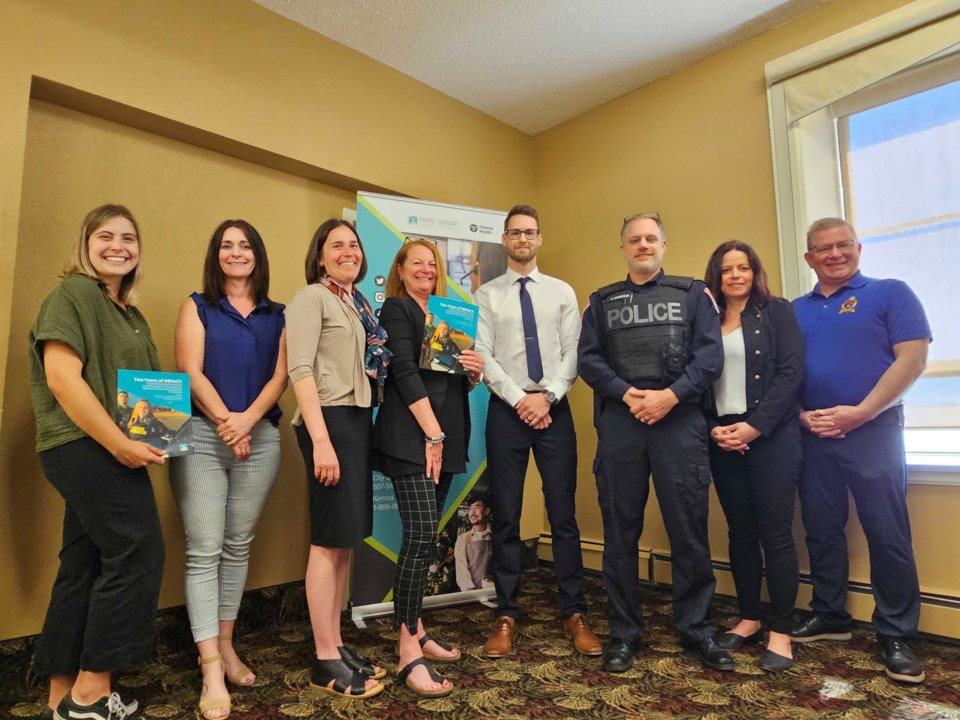THUNDER BAY — Since Jan. 1, 2021, more than 2,700 emergency mental health calls have been addressed by a specialized team paired with police officers.
The Integrated Mobile Police Assessment Crisis Team (IMPACT) is a group of specialized mental health workers who attend calls with specially trained officers within Thunder Bay Police Service to assist in mental health crisis calls over the past two years.
The program has diverted 64 per cent of 911 calls from going to the emergency room at the regional hospital. Instead, those having a mental health crisis received more direct care and support for the type of emergency they were having. Of the calls that the specialized teams attended last year, only 30 per cent of them were brought to the hospital, and three per cent were brought to jail. The teams aren't avoiding the hospital, but instead providing other levels of care for those who need it.
Jennifer Hyslop, the CEO of the Canadian Mental Health Association branch in Thunder Bay, called the program a "phenomenal success" and said it had been a dream of having a different service model in the community to respond to mental health and substance use related crises.
"What this project has shown, and the work that we did previously, was that only high-level acuity folks need to really be in the emergency department for the right level of care," Hyslop said at a media conference on Tuesday that highlighted the program's results.
"Those who don't need that acute level of care can be cared for in the community, whether they're in care with family — CMHA phone line does follow-up wellness calls, there might be access to our safe bed program."
Thunder Bay Police Service Insp. Derek West said the skills of the frontline officers and crisis workers are complementary.
"The crisis worker will bring some different techniques that they've used when working in counselling or helping somebody through crisis that wouldn't be at a crisis level. They can introduce a calmer approach, just being not in uniform ... It makes them more approachable to someone in crisis," West said.
"The idea is that when they work as a team, the officer brings their crisis intervention training, their skills of mediation and negotiation that happens on a daily basis."
West said more than half of the force's primary response officers have received crisis intervention training.
"Our ultimate goal is to have everybody trained with this, so anybody could take this and work as a member for the IMPACT unit," West said.
Hyslop said she would welcome more IMPACT teams, but said more "soft supports" are also needed.
"I think enhanced IMPACT teams would definitely benefit our community, if you look at volume of calls that police get," she said. "I think there's also opportunities we're going to try to build on ... from civilian mobile team, safe beds, the crisis line. It's not a one or nothing.
Hyslop said enhanced services are needed in Thunder Bay, especially for substance use, treatment and transitions.
"We don't have enough detox beds. We don't have a safe sobering site, particularly for adults at this point. I think there's a lot of work we could do with some enhanced funding from our ministry partners, so we can look at mental health crisis and substance use crisis through the same lens, so there aren't barriers and there aren't two different systems."
